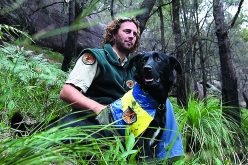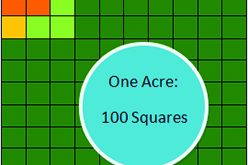The Sierra Club once partnered with the National Rifle Association for their mutual goal of conservation. But try to collaborate with diverse (often opposing) groups, and you can get a fellowship turned on itself by the powers of an evil ring. We’re all watching the same movie about how our planet is changing, and what might be done about it. But the words we choose to describe the movie can create barriers for other viewers.
We might describe the movie as a liberal environmentalist call to activism against climate change and corporations, as a way to rally like-minded and politically similar people to the cause. Yet, the Earth is really everyone’s cause, so we might instead describe the movie as a touching story about one family’s quest for unpolluted drinking water that we can all acquire for our children and neighborhoods. Some words come with boundaries and others with welcome mats.
The same thing that created these boundaries in the first place – words – are able to become one of many tools to dissolve them. Lately I’ve been hearing new words to describe going green in a way that many diverse groups of people care about: health, interdependent, smart, optimization, tensegrity, holistic, synergy, efficiency, solutions. These words are beginning to nudge out other words I have in the past frequently chosen to use: global warming, activist, environmentalist, and even sustainability. Whole books have been written on the importance of permaculture without having a heavy-handed emphasis on sustainability or green consumer goods.
Today I’m striving to be more like Van Jones, who “wants to push the edges of the green norm to include a broader audience,” according to The Psychology of Sustainable Behavior by Christie Manning, PhD. Maybe we don’t have time to grow an organic garden, or have the money to spend on solar panels, but there’s something everyone can do today that can make small yet significant ripples in the movement towards a sustainable, just world. Go green with your words. See every person you meet (and every person you can’t meet) regardless of who they are, as a person who wants to live sustainably but maybe not in those words. Nobody wants sick kids, polluted drinking water, and poison in their food, even if they’re against “organic” or “environmentalism.” We are all at different places and have made different mistakes, but fundamentally, we have the same goals to be happy and healthy.
Thankfully, I’m not naïve enough to believe that factions of readers will stop fighting with each other after a measly 500 word column, but I do like to imagine the power of the subconscious mind when it reads these words and to some degree internalizes the idea that saving the world together has little to do with how similar we are or how much we (dis)like each other.
Ripples is a 100% solar-hosted website that includes a blog, newspaper column, resources and services for individuals and non-profit organizations. Read more on this topic and others at www.RipplesBlog.org











